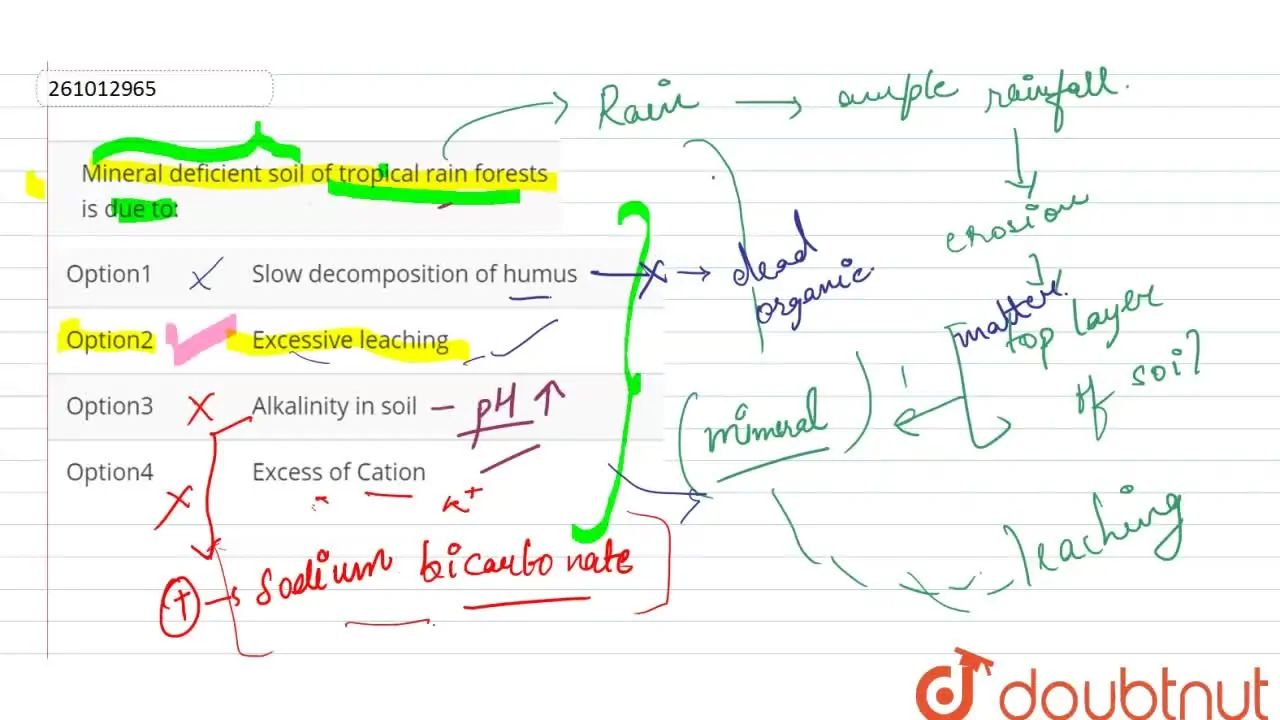Mineral deficient soil of tropical rain forests is due to:
Slow decomposition of humus
Excessive leaching
Alkalinity in soil
Excess of Cation
The correct Answer is:B
Step by step video, text & image solution for Mineral deficient soil of tropical rain forests is due to: by Biology experts to help you in doubts & scoring excellent marks in Class 12 exams.
Similar Questions
Tropical dense forests are due to
View SolutionTropical rain forests occur in :
View SolutionTropical rain forests are found in
View SolutionTropical rain forests in India are found in
View SolutionTropical rain forests in India are found in
View SolutionTropical forests are denser due to
View SolutionSavannahs are tropical rain forests.
View SolutionRead the following environmental conditions of tropical rain forests.
(i) Hot and humid climate
(ii) Unequal lengths of day and night
(iii) Abundant rain fall
(iv) Abundant light and moisture
Identify the conditions from the above list that are responsible for the presence of large number of plants and animals in tropical rain forests.View SolutionGive the productivity of tropical rain forests.
View SolutionIn India, tropical rain forests occur in
View Solution


